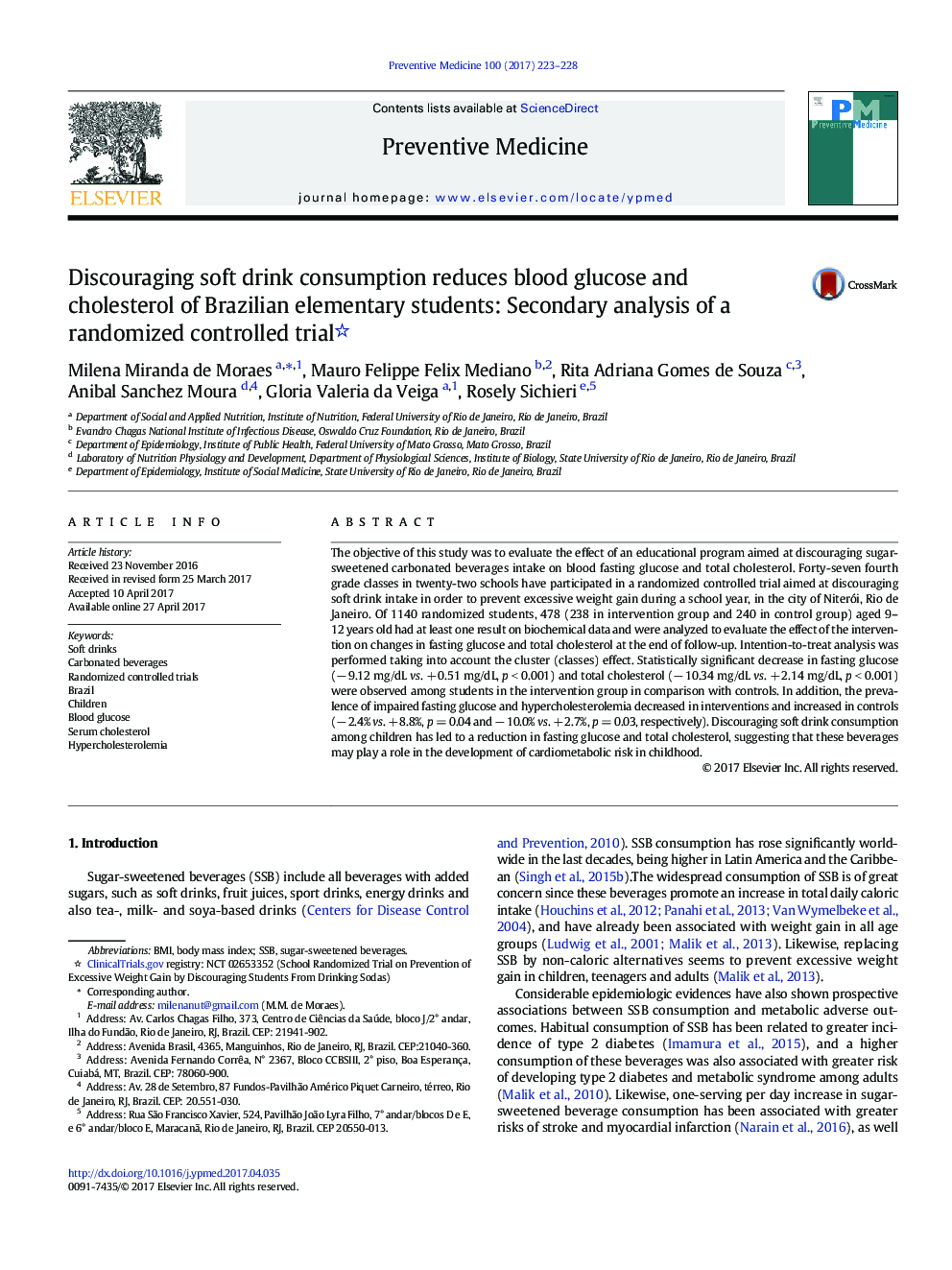| کد مقاله | کد نشریه | سال انتشار | مقاله انگلیسی | نسخه تمام متن |
|---|---|---|---|---|
| 5635621 | 1581614 | 2017 | 6 صفحه PDF | دانلود رایگان |
- Intervention was effective in the reduction of soft drinks intake.
- A reduction in both fasting glucose and total cholesterol was observed.
- Prevalences of impaired fasting glucose and hypercholesterolemia have decreased.
- Changing school environment can be a good alternative to reduce soft drinks intake.
The objective of this study was to evaluate the effect of an educational program aimed at discouraging sugar-sweetened carbonated beverages intake on blood fasting glucose and total cholesterol. Forty-seven fourth grade classes in twenty-two schools have participated in a randomized controlled trial aimed at discouraging soft drink intake in order to prevent excessive weight gain during a school year, in the city of Niterói, Rio de Janeiro. Of 1140 randomized students, 478 (238 in intervention group and 240 in control group) aged 9-12 years old had at least one result on biochemical data and were analyzed to evaluate the effect of the intervention on changes in fasting glucose and total cholesterol at the end of follow-up. Intention-to-treat analysis was performed taking into account the cluster (classes) effect. Statistically significant decrease in fasting glucose (â 9.12 mg/dL vs. + 0.51 mg/dL, p < 0.001) and total cholesterol (â 10.34 mg/dL vs. + 2.14 mg/dL, p < 0.001) were observed among students in the intervention group in comparison with controls. In addition, the prevalence of impaired fasting glucose and hypercholesterolemia decreased in interventions and increased in controls (â 2.4% vs. + 8.8%, p = 0.04 and â 10.0% vs. + 2.7%, p = 0.03, respectively). Discouraging soft drink consumption among children has led to a reduction in fasting glucose and total cholesterol, suggesting that these beverages may play a role in the development of cardiometabolic risk in childhood.
Journal: Preventive Medicine - Volume 100, July 2017, Pages 223-228
